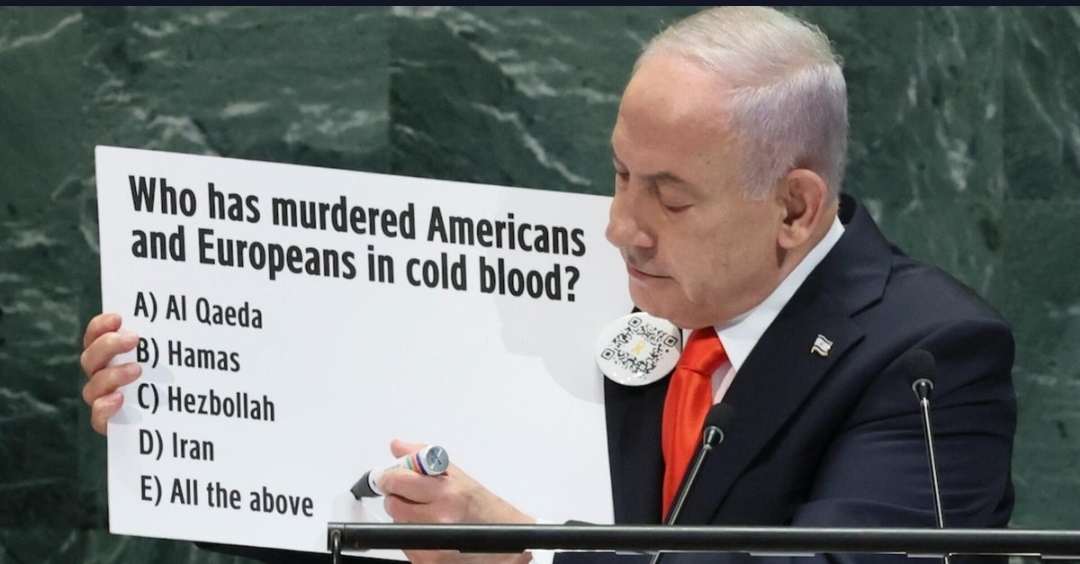In a controversial speech before the United Nations General Assembly today, Friday, Israeli Prime Minister Benjamin Netanyahu emphasized that military operations in Gaza will not stop before Hamas surrenders and the hostages are released, asserting that Israel is working to completely eliminate the Hamas regime.
He pointed out that remnants of the movement are still active in Gaza, and that he resorted to broadcasting his speech through loudspeakers on military vehicles to send direct messages to the captives, stating that Israel will continue to act until they are returned.
Netanyahu held Hamas responsible for the hunger in Gaza, accusing it of stealing aid and using civilians as human shields, while firmly denying international accusations against Israel of committing genocide.
He also strongly attacked Western countries that recognized the state of Palestine, describing their decision as disgraceful and encouraging violence against Jews, considering that recognizing the Palestinian state is a form of madness and suicide for Israel.
He added that the Palestinians are not seeking a two-state solution but rather the establishment of a state on the ruins of Israel, emphasizing that the rejection of the Palestinian state is not only his government's decision but a general Israeli public stance.
In the final part of his speech, Netanyahu accused Iran of developing a nuclear program aimed at destroying Israel, noting that Tel Aviv has waged wars on seven fronts over the past two years and has controlled Iranian airspace during the June war.
He also spoke about "Israel's targeting of Iranian militias in Syria, Iraq, and Yemen," affirming the destruction of Hezbollah's arsenal and prominent leaders within it, and praised the Lebanese government's efforts to disarm the party, considering that peace with Lebanon is contingent upon that.
Netanyahu's rise to the United Nations podium was met with a widespread withdrawal of several international delegations, in a scene described by media as an unprecedented diplomatic embarrassment, reflecting the extent of the political isolation faced by Israel in light of its ongoing war in Gaza.
